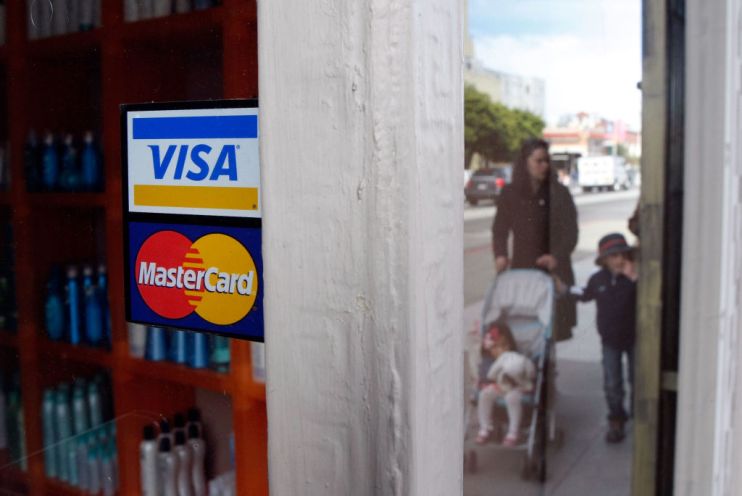A cashless society is proof we need to challenge the Visa and Mastercard monopolies

How often do you see a “card only” sign as you go to pay for your coffee? Cash payments have declined by two thirds since 2010, and card payments have become the de facto way to pay, accounting for 73 per cent of UK transactions in 2021.
From this change, there have been two significant benefactors of our move away from pennies. Together Visa and Mastercard own 99 per cent of the card market.
At the same time, the economic challenges facing British businesses are stark. Energy bills are skyrocketing and inflation is rampant; many smaller businesses face the bitter prospect of financial ruin.
These challenges are well-documented. But there is a less-known secret cost that is damaging small and medium businesses across Britain – the stealth card tax.
When businesses accept a payment using a debit or credit card, they pay the card schemes a price for the privilege. And these fees have been rising, fast.
Experts estimate that the scheme and processing fees that card schemes charge directly to merchants for their services have exploded by around 600 per cent in the space of just eight years.
And those costs only account for roughly a quarter of the total fee that merchants pay when they accept a card payment. In 2022 alone, UK retailers will pay just shy of £5bn in fees for accepting card payments.
Butchers, bakers, wedding dress makers – nobody on our high street is exempt from the ever-increasing fees that stack up year-on-year. For years retailers have asked for change.
British businesses need a solution. The banking sector has faced increasing competition from the £11bn fintech industry in the UK. A handful of them have gone on to become unicorns – companies valued at over £1bn.
But while the payments sector is ripe for disruption, innovative payment fintechs are unable to meaningfully compete. The entrenched dominance of card technology is preventing UK fintechs from equipping other businesses with tech that will help them to keep costs down while still taking payments securely and swiftly.
The government has talked of cutting taxes in a way that inspires growth, engages entrepreneurship and helps businesses through what will surely be another difficult winter. There are 240,000 firms calling on the government to axe the card tax. Clearly, the status quo – or orthodoxy, as Liz Truss calls it – is not working.
The Payments Regulator has taken an important first step by this year committing to investigate the reasons for the fee rises. Early impressions suggest that the spike is not related to rising costs for Visa and Mastercard.
But this investigation must be matched by a recognition that we need policy support for a competitive payments sector. Open Banking, BNPL, crypto – there are any number of possible alternatives waiting to be let loose, putting potentially billions of pounds back into the pockets of businesses.
This isn’t about special treatment or picking winners. But talented British tech startups need a level playing field to compete with these American behemoths.
In her speech to Conservative Party conference, Truss talked of fighting off the “enemies of enterprise”. But this has been allowed to flourish for decades now. The most significant growth that firms across the country have faced is the cost of accepting card payments – something so integral to their businesses. And yet it has been ignored.
This is an opportunity to save businesses money, but it is also about adapting to a changing economy that is increasingly reliant on cards. There is a chance to save businesses money whilst supporting home-grown entrepreneurs. We’ve heard the rhetoric, now we need to see action.